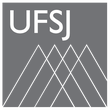Banca de QUALIFICAÇÃO: LETÍCIA MARIA DE OLIVEIRA
Uma banca de QUALIFICAÇÃO de MESTRADO foi cadastrada pelo programa.STUDENT : LETÍCIA MARIA DE OLIVEIRA
DATE: 12/08/2022
TIME: 13:30
LOCAL: Universidade Federal de São João del-Rei
TITLE:
CONSTRUCTION AND VALIDATION OF CHOOSING WISELY STATEMENTS FOR THE TREATMENT OF CHRONIC INJURIES
KEY WORDS:
Wounds and Injuries; Healing; Wound Closure Techniques; Stomatherapy
PAGES: 30
BIG AREA: Ciências da Saúde
AREA: Enfermagem
SUMMARY:
Introduction: The treatment of wounds is a detailed process that demands scientific and specific knowledge from the health professional. Daily evaluation and monitoring is essential to obtain an effective result in the short term, which reflects on the quality of care provided and, consequently, on cost reduction. Knowledge and use of the Choosing Wisely Campaign directs and provides a better quality of care provided to patients, in addition to optimizing the use of resources, whether physical or human. In this way, the Chossing Wisely Campaign has drawn worldwide attention as a potentially promising approach to the problem of unnecessary health care. Objective: To construct and validate Choosing Wisely statements for the management of chronic wounds. Method: This is a methodological study, with a quantitative approach, for the construction and validation of statements for the Choosing Wisely campaign in chronic injuries in Brazil. It will be developed in 3 stages: INTEGRATIVE LITERATURE REVIEW The integrative review will aim to identify, in the national and international literature, the actions that negatively interfere with the treatment of wounds of the Choosing Wisely campaign in the treatment of chronic wounds already published whose purpose is the synthesis knowledge and its applicability in practice. CONSTRUCTION OF CHOOSING WISELY STATEMENTS: The construction of the Choosing Wisely campaign in wounds was based on data from the integrative review, comprising the procedures to be carried out on the items considered best practices for the treatment of chronic wounds, based on the evidence levels of selected articles. CONTENT AND APPEARANCE VALIDATION: consisting of the analysis of the proportion in which the items/procedures elaborated measure and represent all the important aspects of the construct under study. At this stage, the Delphi technique will be used, where 10 judges will be invited to participate in the study.
BANKING MEMBERS:
Presidente - 2001652 - JULIANO TEIXEIRA MORAES
Interna - 1972032 - PATRICIA PERES DE OLIVEIRA
Interno - 1819016 - DANIEL NOGUEIRA CORTEZ
Externa à Instituição - SONIA REGINA PÉRES EVANGELISTA DANTAS



